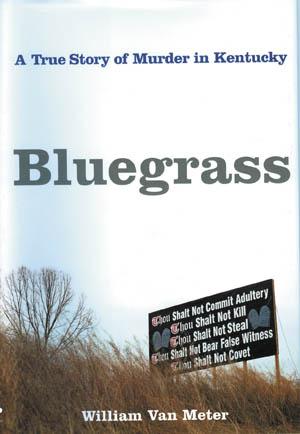Volume written on Autry murder
Published 12:00 am Saturday, January 3, 2009

- Volume written on Autry murder
More than five years after the rape and murder of coed Katie Autry, a writer has set out to tell the story of how subsequent events have tied three families together.
William Van Meter, a native of Bowling Green now living in Brooklyn, N.Y., is the author of “Bluegrass,” a book that tells the story of Autry, an 18-year-old Western Kentucky University student who was raped, stabbed and set on fire in her Poland Hall dorm room in May 2003. The Pellville native died from her injuries three days later.
Stephen Soules and Lucas Goodrum, both of Scottsville, were charged in the case. Soules, 25, pled guilty in 2004 to seven criminal counts, including murder, first-degree rape, first-degree rape by complicity, first-degree robbery, first-degree arson by complicity, first-degree sodomy and first-degree sodomy by complicity. He is serving a life sentence in prison with no possibility of parole.
Goodrum, 27, was acquitted on all counts in a jury trial held in Owensboro in 2005. He was held in the Warren County Regional Jail for nearly two years before going to trial, at which Soules testified.
Van Meter, 33, covered Goodrum’s trial, planning to submit his account for publication in a magazine. But the story involved so many people and was so richly detailed, he said, that the article turned into “Bluegrass,” issued by Simon and Schuster and available in bookstores Tuesday.
“Along with everyone else, I was reading the newspaper and looking at the television news reports … there was everything about the investigation and every court update, but (the reporting) missed out on the minutia of these peoples’ daily lives and what these people were like before everything happened,” Van Meter said.
As a result, the book delves into the lives of Autry, Goodrum and Soules, providing several biographical details about their lives before their names became intertwined in the case.
Van Meter moved from Bowling Green to New York in 1994, and his writing has appeared in the New York Times, New York magazine and Harper’s Bazaar, among other publications. He wanted to explore the murder in the context of Bowling Green as a community grappling with a growing population, a development boom and increasing influence of foreign cultures.
“The Bowling Green that I grew up in is not the Bowling Green that exists now,” Van Meter said. “It did not compute that something like this could happen, and I wanted to find out more about it.”
In the process of writing the book, he said, he focused on showing the victim and the two men accused of her murder were more complex than how they were described in the news.
Several reports mentioned that Autry briefly worked as an exotic dancer at Tattle Tales Gentleman’s Club and was raised for several years in a foster home, and that Goodrum’s stepfather, Bruce Dugas, was a grandson of Cal Turner, founder of the Dollar General chain of discount stores.
“I think the three people that I tried to explore were reduced to stereotypes that really didn’t represent them – that Luke was a rich monster, Stephen was a poor pauper and Katie was this stripper foster child,” Van Meter said. “I felt very, very protective of Katie … she was a true victim, and her life ended at such an awkward point that I wanted to show why people loved her and miss her now.”
Van Meter interviewed Goodrum at Double D Ranch in Aubrey, Texas, where he and his mother, Donna Dugas, lived after the trial; he also spoke to several relatives of Autry, Goodrum and Soules for his book.
“I hope that people get out of (the book) that the world’s not as safe as it should be and Katie didn’t deserve what happened to her,” said Autry’s cousin, 22-year-old Barbie White.
White’s mother, Virginia, briefly raised Katie and her sister Lisa before the Autrys were placed in foster care. She has an 18-month-old son, Kaler, named in honor of Katie.
“I don’t think that anyone involved with the case feels that justice was served,” Van Meter said. “The trial did not sway (the Autry family). They think that Lucas is guilty. The Soules family doesn’t feel justice is served; they feel that he was kind of a victim that night also, somehow. Lucas doesn’t feel justice was served since he was in jail for so long and that the trial didn’t sway the opinion of many people.”





